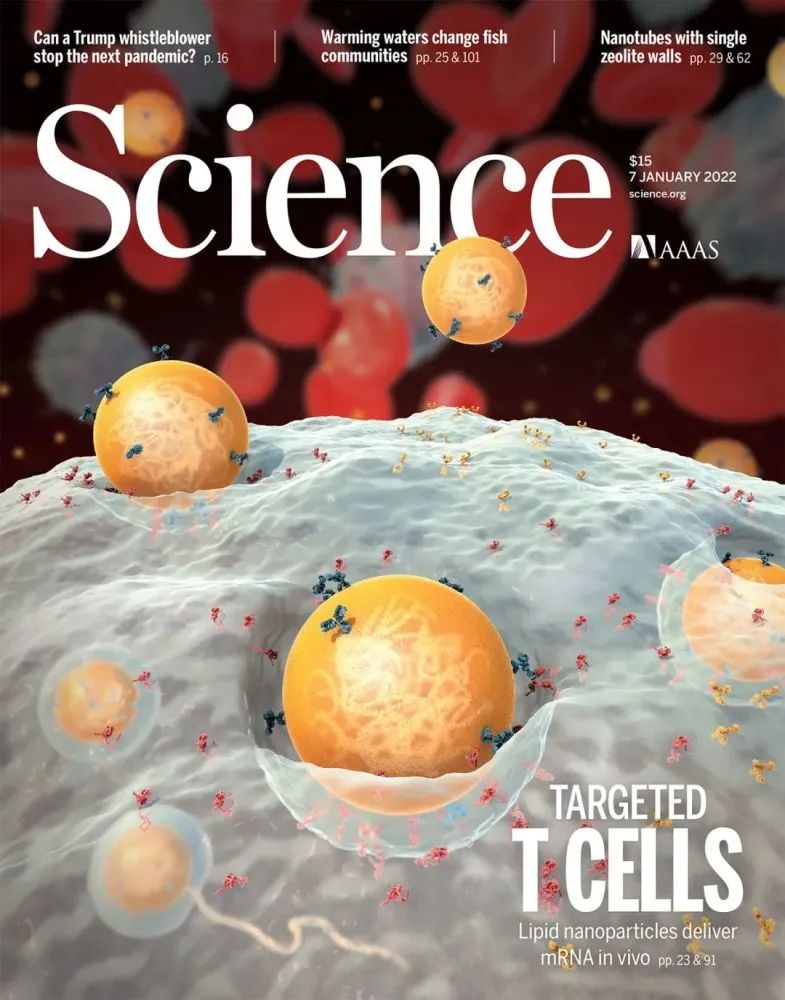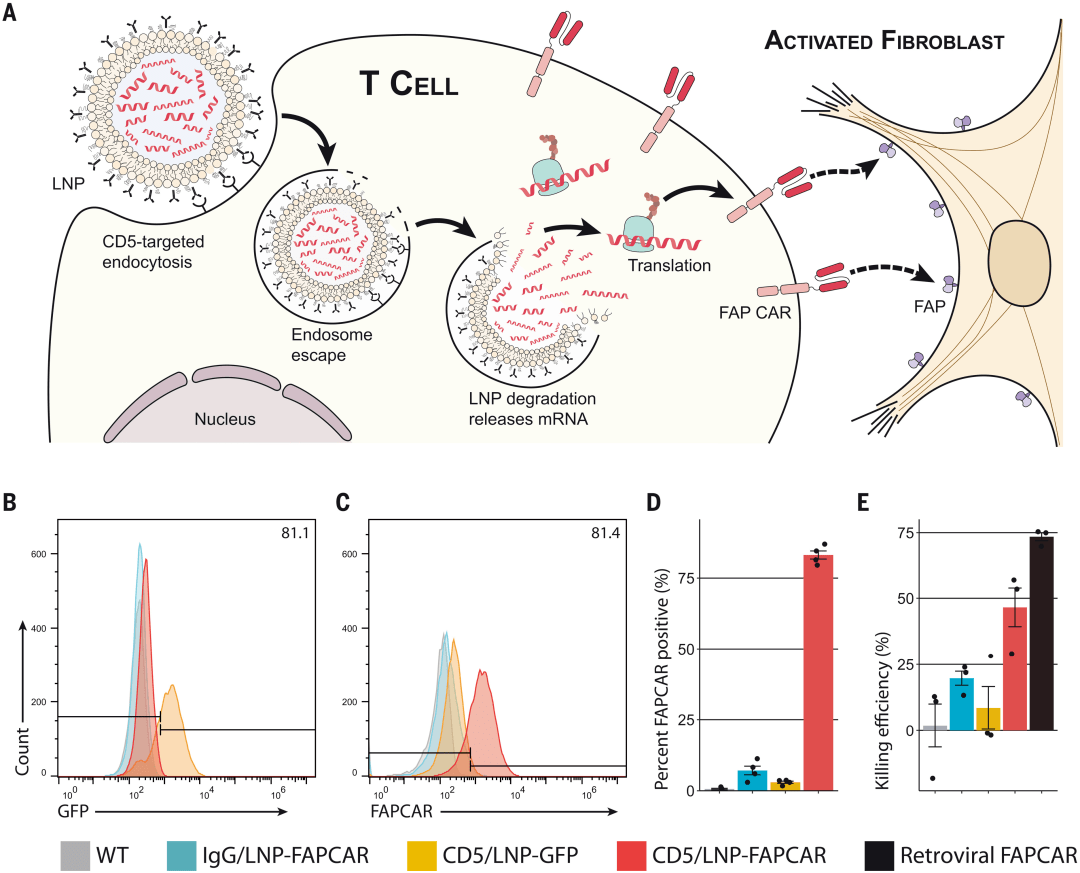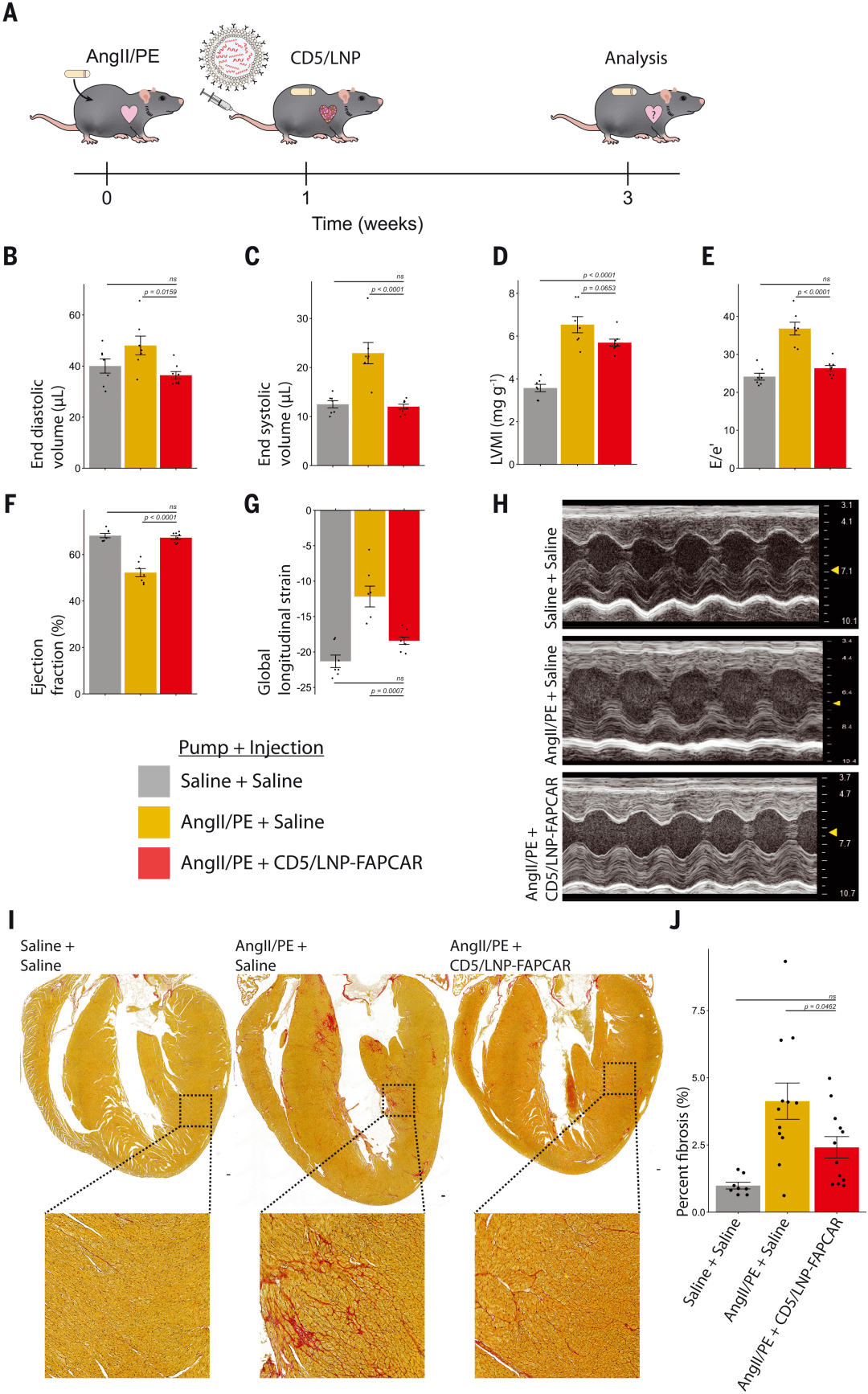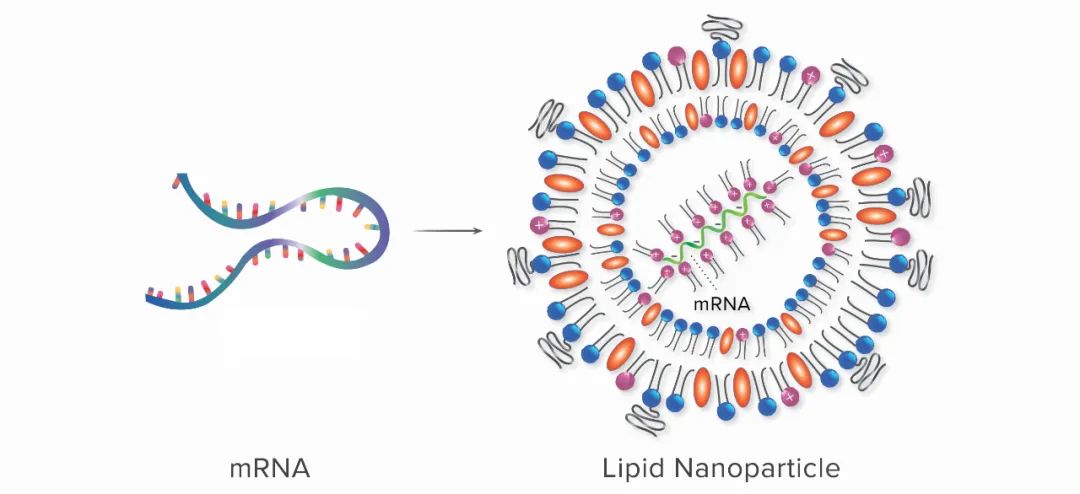Research Progress of mRNA-LNP in CAR-T Therapy
The successful application of mRNA technology in the development of COVID-19 vaccines has provided groundbreaking insights and exceptional promise for therapeutic strategies against various diseases.
Landmark Study in Science: In Vivo Injection of mRNA to Generate CAR-T Cells

In January of this year, a groundbreaking study featured on the cover of Science revealed that researchers from the Perelman School of Medicine at the University of Pennsylvania successfully restored cardiac function in mice with heart failure through a single mRNA injection enabling CAR-T therapy.
The approach utilized T cell-targeting lipid nanoparticles (LNPs) to deliver engineered messenger RNA (mRNA), generating transient antifibrotic chimeric antigen receptor (CAR) T cells directly within the body. By injecting CD5-targeted LNPs into mouse models of heart failure, the team evaluated the efficacy of these in vivo reprogrammed CAR-T cells. The results demonstrated efficient delivery of modified mRNA encoding CARs to T lymphocytes, leading to the generation of highly effective transient CAR-T cells in vivo.
Functional mRNA-Based FAP-CAR T Cells The antifibrotic CAR-T cells exhibited increased activation and accumulated in the spleen while retaining their target antigen specificity. However, this reprogramming was transient: the mRNAs did not integrate into T cell DNA and remained functional for only a few days within the T cells. After this period, the T cells reverted to their original state and no longer targeted fibroblasts. Transient FAP-CAR T Cells Improve Cardiac Function Post-Injury Scientists discovered that despite their short-lived activity, mRNA injections in mouse models of heart failure successfully reprogrammed a significant portion of T cells. Within one week of treatment, this approach led to a substantial reduction in cardiac fibrosis, restoration of near-normal heart size and function, and no evidence of persistent antifibroblast T cell activity.

Broad Applications of mRNA-LNP Platform: A Disruptive Technology for Antibody and Cell Therapy
The experimental achievements in this landmark Science study provide proof-of-concept for using engineered targeted mRNA-LNP technology to generate functional CAR-T cells in vivo via intravenous infusion. This platform holds promise as a therapeutic strategy for treating diverse diseases.
As emphasized by the study’s lead researcher, mRNA pioneer Dr. Drew Weissman, Roberts Family Professor of Vaccine Research at the Perelman School of Medicine, University of Pennsylvania:
"Producing functional CAR-T cells in vivo significantly expands the potential applications of the mRNA-LNP platform."
CAR-T cell therapy offers precise targeting and potent cytotoxicity, while mRNA therapeutics utilize RNA encoding target antigens. Through specific delivery systems, cells internalize and express these antigens, triggering both humoral and cell-mediated immune responses. The use of engineered mRNA-LNP technology to generate CAR-T cells and modify other blood cells in vivo represents a transformative advancement in cell therapy and antibody development.



 ADD:Office Suite 29A, 3/F 23 Wharf Street London ,United Kingdom,SE83GG
ADD:Office Suite 29A, 3/F 23 Wharf Street London ,United Kingdom,SE83GG  WEB:www.aquariusscientific.com
WEB:www.aquariusscientific.com EMAIL:admin@
EMAIL:admin@